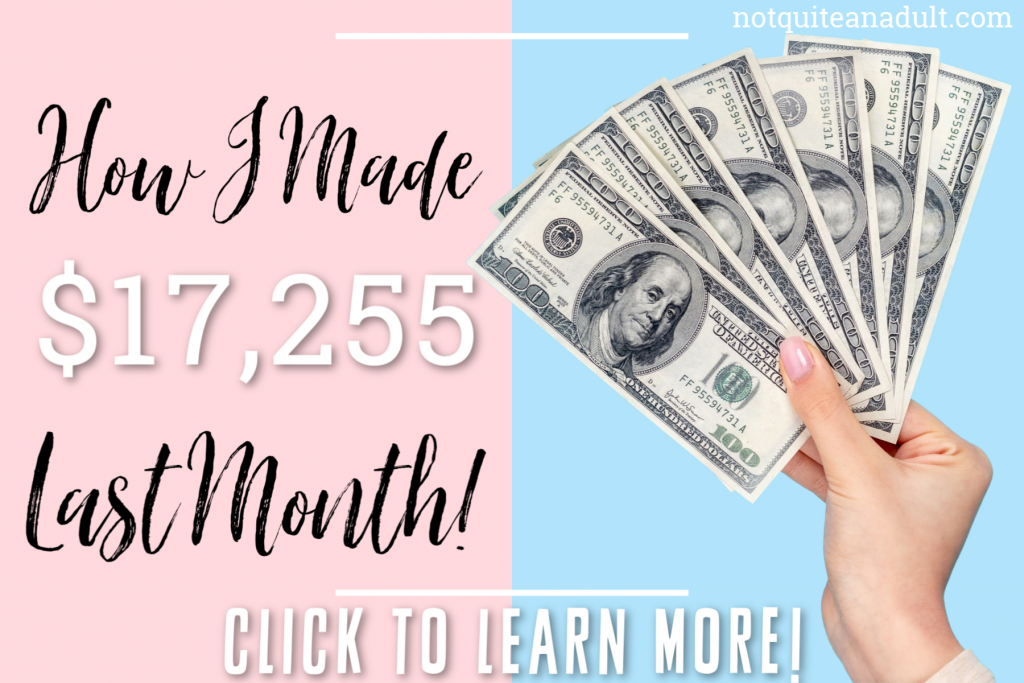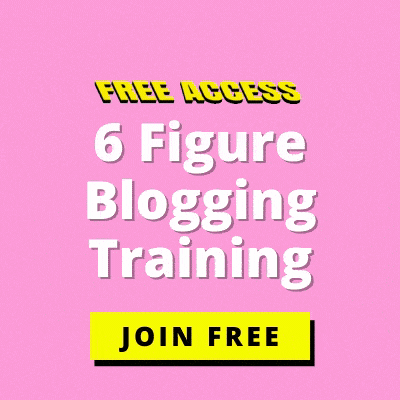Welp. Budgeting is not a fun experience if you’ve never done it before which is why I think that you reading this budgeting for beginners post is a great first step.
My regular readers know that I went from completely clueless about anything money to personal finance blogger and “guru” as some people would say in just a matter of months. I’ve dedicated so much of my time to learning awesome tips for budgeting for dummies, as well as information about frugal living, debt payoff, and credit scores.
In my opinion, there are 7 important steps to budgeting for beginners and all of them are going to be outlined below, but here’s a little sneak peek:
- Figure Out Why
- Set Financial Goals
- Calculate Total Income
- Calculate a Bare Bones Budget
- Calculate Other Expenses
- Subtract Your income From Expenses
- Monitor and Adjust When Necessary
If you enjoy this blog post, please do us a solid and share it on Pinterest or Facebook to show your friends and help their money get in better shape this year!

Table of Contents
How to Start Budgeting for Beginners
Throughout this post I’m going to be using the Zero-Based Budget method of budgeting to explain how to budget for beginners. Why? Well, I’ve tried every single budgeting method that’s out there to write about and to get my own money together and the Zero-Based Budget is the most straightforward budget that is perfect for beginners.
1. Figure Out Why
HEY! Don’t scroll past this section just because you think it’s lame. Okay, you’re still here? Thank you for listening.
If you’ve never had a budget before, chances are there’s a reason why you want to start your first budget. Whether it be saving for something, like a wedding, or having children, or just wanting to be a little more adult, all of this can push us to go towards budgeting.
No matter what the topic, I’m a huge fan of talking about why we do the things we do before we even do them because it’s an amazing way to stay motivated.
Now, I’m never going to say budgeting is easy. Budgeting sucks. There. I said it. Since it sucks and it’s much more fun to just do whatever you want with your money, it’s going to be hard some days for you to stick to your budget.
Having your why in mind at all times is going to help you through those hard days and the days where you just want to buy 40 pairs of fuzzy socks from Target.
Bonus Tip: If you really need a remind of why you’re budgeting and trying to save money, make it your phone wallpaper. I’ve had pictures of places I want to visit, pictures I created of my student loans at 0 and so many other super dorky things as my home background and it’s always helped me.
2. Set Financial Goals
Setting financial goals is key to your new beginner budget actually succeeding.
My favourite way to set goals for the future is to think about what your ideal day would be in 5 years or 10 years or 50 years. Doing this is going to help you eliminate all of the crazy things that you do from day to day that aren’t helping you contribute to those goals.
Here’s an example, my biggest financial goal in life is just financial freedom. For me, this means being debt free, having freedom of location, and being able to travel whenever I’d like without having to worry about paying for it.
My ideal day in 5 years would be sitting at a cafe in a new city around the world, working on my business for a few hours, then exploring and going back to my rented apartment.
This means my financial goals are to increase my income to at least $10,000 a month so I have zero worries, become completely debt free, having at least $10,000 in an emergency fund just in case something bad happens.
Since these are what I’m working on, I don’t like to spend money on silly things. I don’t buy expensive clothing. I work a ton. Most of the money I spend is business expenses.
Try out this exercise and see how it works for you. What would you ideal day in 5 years look like? Work backwards and figure out some financial goals.
Some great ideas for financial goals could be:
- Paying off your student loan debt *my original financial goal and reason for budgeting
- Save up for a house downpayment
- Saving for your Emergency Fund
- Start saving early for retirement
3. Calculate Total Income
This is the first real step in budgeting for beginners because without having a clear idea of your total income picture, you’ll never be able to make a budget that actually works for you. This means you need to fully calculate your income with all sources included, no matter how small.
*Make sure you’re budgeting with yourafter tax income and not the money you make before taxes and other deductions are made, that can make for a pretty sticky situation.
I know for a lot of beginner budgeters, their income is only going to be their full-time job salary or hourly wage so this step will be super easy for you if that’s the case. However, you should also budget in any random money you’ll receive throughout the month. For example:
- Child Support
- Alimony
- Government Benefits
- Etc
If you have a part-time job or a side hustle your income section may look a little bit different, especially if your side hustle income varies. Budgeting with an Irregular Income is kind-of complicated, but I recently wrote an entire post that can help you maneuver through it nicely.
Here’s an example of a fictional characters monthly income, we’ll call her Carol:
- Full-Time Job Income: 3,500
- Blogging Income: 1,000
- Dog Walking Income: 200
Total Income for Carol: $4,700
4. Calculate a Bare Bones Budget
When you’re creating your very first budget it’s important that you’re able to distinguish between expenses that you need to survive, and expenses that are just luxuries that can be eliminated. This is easily done through creating a Bare Bones Budget.
This budget doesn’t even include debt payoff, or savings, just the things that you absolute need to survive until tomorrow. This would include:
- Mortgage/Rent
- Food
- Utilities (i.e., heat and water)
- Basic Transportation
Of course you need a roof over your head and food in your stomach and heat and water in your home. Some people don’t believe that transportation should be included in a bare bones budget, however, I believe that it should be as long as you absolutely must have transportation to get to and from work to pay for the food and mortgage.
The point of creating your bare bones budget is to find out the things that you absolute need to pay so you can properly prioritize the things you need to pay in your budget first and put the rest further down in your budget.
Here’s an example of our fictional friend Carol’s Bare Bones Budget for the month:
- Mortgage Payment: 950
- Groceries: 250
- Utilities: 250
- Transportation: 100 (for gas, her car is paid off and she works close to home)
Carol’s Bare Bones Budget: 1,550
5. Calculate Other Expenses
This section is a bit more fun than a Bare Bones Budget, at least you get to budget for some fun here instead of just the life-or-death expenses. However, if you’re looking to build awesome financial habits, you should start with your financial goals and then work down towards your other expenses.
If your financial goal is to pay off debt, you should consider your debt payment before you put in any fun money expenses like eating out or new clothing. There are a ton of expenses that you could include in this section, this really depends on the person creating the budget, for example:
- Clothing
- Eating Out
- Alcohol
- Entertainment
- Hair & Other Toiletries
- Vacations
- Subscription Services
- Etc
Let’s say that our buddy Carol is working towards paying off her student loans while simultaneously building up an emergency fund of 3 months of her expenses. So, her financial goal expenses include:
- Student Loan Payoff: 500
- Emergency Fund: 1,000
Carol’s Financial Goal Expenses: $1,500
Carol is a pretty frugal person, so she doesn’t have a ton of needs but she does enjoy the occasional meal with her friends and family at her favourite restaurant. Her fun expenses include:
- Clothing: 100
- Eating Out: 200
- Toiletries: 50
- Netflix: 15
- Vacation Savings: 500
Carol’s Fun Expenses: $865
6. Subtract Your Income From Expenses
Since we’re using a Zero-Based Budgeting method, the number we’re hoping to see is zero once we’ve figured out all of our expenses, financial goals, and savings. So if there’s any extra money left over you can decide exactly where that goes, ideally to savings.
If you calculate your budget and end up with a negative number, then Houston you have got a problem. You’re going to need to go back up to your financial goals and fun expenses and see where you can cut back to make your budget work better for your situation.
Here’s how Carol’s budget worked out:
- Income – (Mandatory Expenses + Financial Goals + Fun Expenses)
- 4,700 – (1,550 + 1,500 + 865)
- 785 leftover
Since Carol is using a Zero-Based Budget, she’s going to take this $785 and either put it into her savings, or use it to pay off her debt faster.
7. Monitor and Adjust When Necessary
And BOOM, you now have your very first beginner budget. How does it feel? Well, you aren’t quite done yet. Your final step is to monitor your budget, and adjust it whenever it just doesn’t make the cut.
One of the best things you can do for the continued success of your budget is to host a Monthly Budget Meeting with your significant other (or alone if you’re single, no shame in that game). Having a budget meeting will make it so that you can plan for one-time expenses and adjust your financial goals as need be.
You should also be monitoring your credit score at ALL TIMES, regardless of how old you are! You can monitor it 100% for free using Credit Sesame.
The longer you work on your budget, the easier the adjustments will be and you’ll find yourself spending less and less time on your budget each month because you’ll become a serious budgeting PROFESSIONAL.
Final Thoughts
Are you excited to finally have an awesome beginner budget that works well for you? I know I’m really excited that you were able to do it.









Leave a Reply